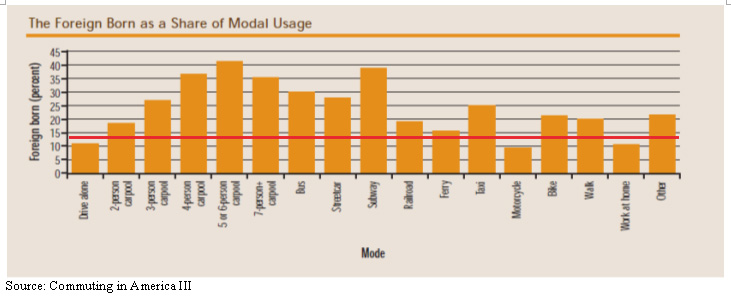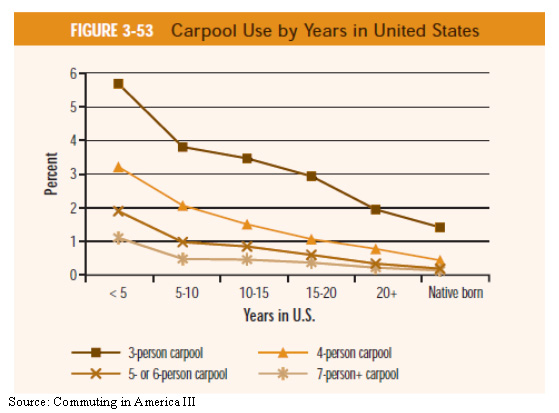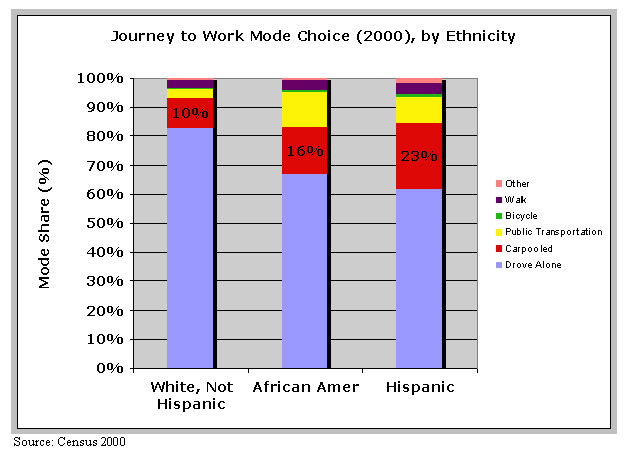
However, it would be incorrect to characterize carpooling as simply a domestic vs. foreign issue. The evidence suggests that recent immigrants are much more likely to carpool than those foreign-born residents that have lived in the US for some time.

Ignoring length of time in the US for the time being, the 2000 Census data also shows that the incidence of carpooling is much higher among Hispanic Americans than it is for any other ethnic group. White, non-Hispanic Americans’ carpool share is only 10% for commute trips while the share for African Americans is 16% and the share for Hispanic Americans is 22%. This finding begins to explain the high rideshare mode splits in the metro areas of the US Southwest where Hispanic populations are more highly concentrated.

The high share of carpool activity attributed to recent immigrants and Hispanics leaves an interesting question unanswered. Is the initial high participation rate in carpools due to an inability to purchase a private vehicle (for financial reasons or otherwise), cultural factors related to shared vehicle transport, some combination of the two or other factors entirely?